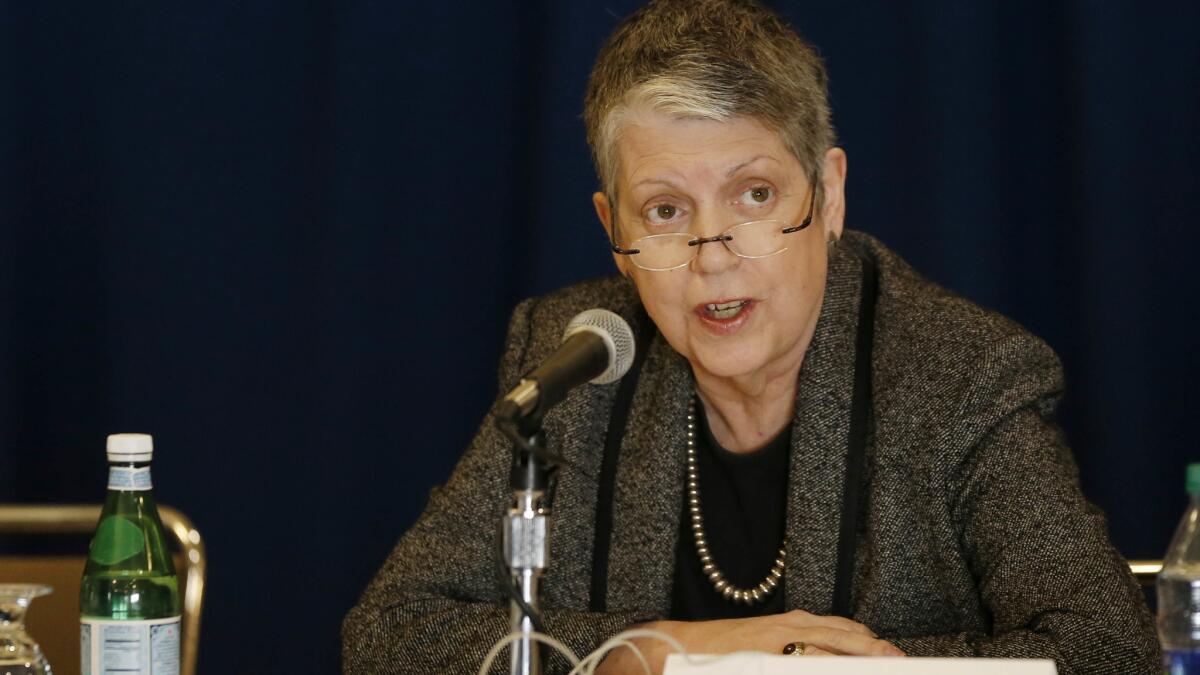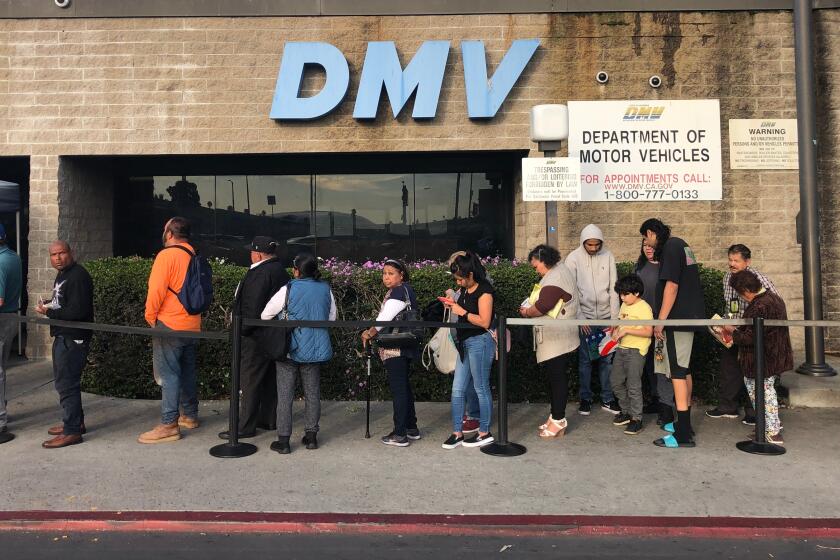UC is moving forward with Mexican initiative, regardless of Trump actions

- Share via
University of California President Janet Napolitano is headed to Mexico next week to reassure leaders there that the public research university remains committed to academic collaboration — even if some of it, such as climate change research, is at risk under the Trump administration.
In an interview Wednesday, Napolitano said she would build on the UC-Mexico Initiative she launched in 2014 despite President Trump’s plans to build a border wall, increase immigration enforcement and reduce federal research funding.
She said she planned to tell Mexicans during three days of meetings starting next Wednesday, “Regardless of what is happening federally, the University of California remains open to academic partnerships with Mexico.”
Napolitano developed ties with Mexico as the governor of Arizona and as U.S. Homeland Security secretary. She said she launched the initiative to bring together disparate work at individual UC campuses. She provided $60,000 in seed money for UC faculty to meet with Mexican counterparts and decide priorities; they selected education, energy, the environment, health and the arts and culture.
In all so far, UC has provided $3 million. The researchers have raised an additional $12 million, primarily from the National Science Foundation, Universidad Nacional Autónoma de México and Tec de Monterrey.
The environmental group, for instance, received a five-year, $4-million National Science Foundation grant for climate-change research. That research won’t stop, Napolitano said, even if federal funding for it does.
“The work continues,” she said. “We will be searching for other sources of funding, including from Mexican government agencies.”
We will be searching for other sources of funding, including from Mexican government agencies.
— UC President Janet Napolitano
Patricia Gándara, a research professor of education at UCLA, said the systemwide initiative has made an “enormous difference” collaboratively.
“It’s brought some campuses together to do much more than any one of us could have done alone,” she said.
UCLA, UC San Diego and UC Riverside, she said, are working with Mexican partners to support students who travel back and forth between the two countries. While the research group’s initial focus was on Mexican students in the U.S., it’s now shifting toward the growing number of American students returning to Mexico with parents who were deported, lost jobs or got “freaked out about Trump,” Gándara said.
About 500,000 such students now attend Mexican schools, Gándara said — and their numbers and lack of adequate Spanish have overwhelmed education officials there, she said. Last fall, the UC-Mexico group held a conference on the issue in Mexico City.
Other projects include a bilingual, online algebra curriculum that was tested with Mexican students in the Los Angeles Unified School District and an effort to map schools and other educational resources in the whole Southern California-Baja California Norte region.
“In spite of this ugly rhetoric we’re hearing,” Gándara said, referring to Trump, “there is a great deal of desire and goodwill to make things better for kids on both sides of the border.”
Under the initiative, the number of American and Mexican students, faculty and postdoctoral fellows studying in each other’s countries has increased 34% in the last three years, said Cindy Giorgio, director of UC-Mexico, which is based at UC Riverside.
Exchanges include a summer program at five UC campuses, offering Mexican students a chance to work with faculty members here on research projects and prepare for U.S. graduate school.
Other joint research focuses on diabetes, synthetic materials for brain surgery, renewable energy and border technology. UC also is working with business groups on both sides of the border to create binational student internships.
“By geography, by history and culture, California and Mexico share a lot,” Napolitano said. “At the University of California, we can do a lot to strengthen that partnership.”
MORE ON THE UC:
Anti-Semitic vandalism found at law student’s dorm at UC Hastings
Editorial: How many high-paying out-of-state students is enough for UC?
More to Read
Sign up for Essential California
The most important California stories and recommendations in your inbox every morning.
You may occasionally receive promotional content from the Los Angeles Times.









